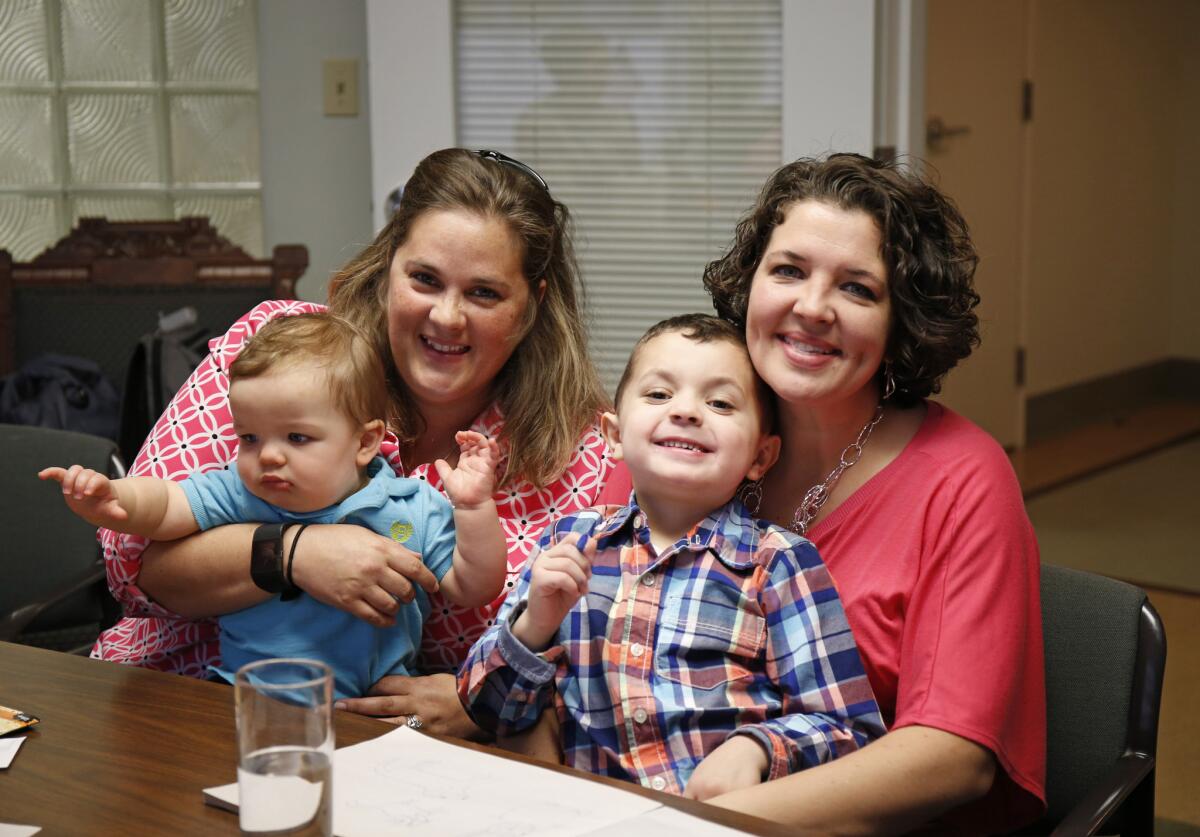Opinion: Rainbow flags and Stars and Bars

Good morning. I'm Paul Thornton, The Times' letters editor, and it is Saturday, June 27. On this day in 1542, Juan Rodríguez Cabrillo set out from Mexico on the expedition in which he would ultimately claim California for Spain. Here's a look back at the week in Opinion.
The Supreme Court's very busy week ended with a one-two punch. On Thursday a six-justice majority ruled that individuals who purchase insurance on the federally run exchange can receive taxpayer subsidies, effectively saving Obamacare from collapse. And on Friday a 5-4 majority found that same-sex couples have a "fundamental" right to marry under the Constitution.
But does marriage equality mean full equality for same-sex couples? Perhaps not. On The Times' op-ed page, UC Irvine law professor Douglas NeJaime cautions that the ruling "could work to produce new conflicts and intensify old ones" for gay and lesbian couples, especially when it comes to raising children that may not be biologically related to both parents. He writes:
Consider the position of David Blankenhorn, head of the Institute for American Values and star witness in favor of Proposition 8 when California's gay-marriage ban went on trial in 2010. Back then, Blankenhorn justified such bans based on the "need … to make it as likely as we can, that the biological parents are also the social and legal parents." In 2012, Blankenhorn announced a change of heart on same-sex marriage, but he still hoped "both gays and straight[s]" could agree that "children born through artificial reproductive technology [have] the right to know and be known by their biological parents."
Same-sex couples often have children through assisted reproductive technologies. Research from the Williams Institute at UCLA shows that lesbian and gay people are much more likely than heterosexuals to be raising nonbiological children. By continuing to emphasize biological family ties, Blankenhorn could endorse same-sex marriage yet maintain the second-class status of families formed by same-sex couples. Today, the Center for Marriage and Families at Blankenhorn's institute is advocating significant restrictions on reproductive technologies. His position reveals how old arguments against same-sex marriage may find new life in refusals to accept and acknowledge married same-sex parents.
Common sense prevailed over ideology in the Supreme Court's Affordable Care Act decision, says the L.A. Times Editorial Board. "The court turned away a bogus and historically inaccurate reading that would have contradicted the law's very purpose." L.A. Times
University of Michigan law professor Nicholas Bagley agrees, and accuses Justice Antonin Scalia, who wrote the dissenting opinion, of "blinkered literalism." L.A. Times
It was a tough week for Scalia, says John Healy. The conservative justice was on the losing end of major decisions on same-sex marriage, the Affordable Care Act and housing discrimination. And yet his views on textualism, "the approach to statutory interpretation that calls on judges to ignore the legislative history and focus with laser-like precision on the text itself," won out "spectacularly." L.A. Times
After the shooting deaths of nine African Americans in Charleston, S.C., last week, some of the conversation on race in America has been taken to a level of much-needed discomfort -- and not just about the Confederate battle flag that defiantly flies on the South Carolina Statehouse grounds.
Edward E. Baptist, a Cornell University history professor, says that after the shooting much of the "forgiveness" that has been exalted by some white Americans as a heartening example of racial reconciliation is no substitute for real atonement after hundreds of years of racial violence. L.A. Times
Jonah Goldberg is impressed by the magnanimity of the Charleston community, and he says the grace and dignity on display in South Carolina prove the "white Northern liberals" who "explain how the South is an irredeemable cesspool of hate" are wrong about Dixie. L.A. Times
America's first black president said the N-word on the record, and that's OK, writes Madison T. Shockley II: "Lost in the kerfuffle is the central point [President Obama] was making: that even if the movement to banish the word were successful, it would not be evidence that racism had been diminished, let alone eliminated." L.A. Times
Words mean a lot to us, especially yours. Please send any feedback you have about this newsletter to [email protected].
A cure for the common opinion
Get thought-provoking perspectives with our weekly newsletter.
You may occasionally receive promotional content from the Los Angeles Times.








